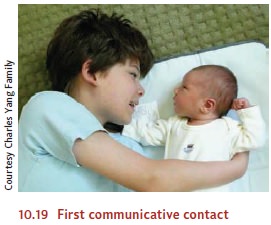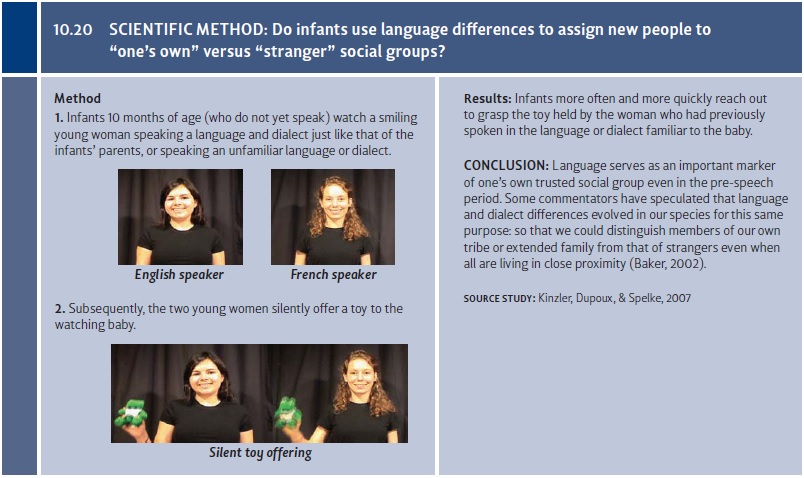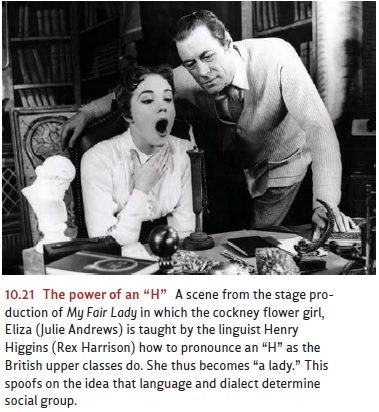Chapter: Psychology: Language
The Social Origins of Language Learning
The Social
Origins of Language Learning
Prelinguistic infants show an
intense responsiveness to speech (Figure 10.19). Neonates’ heart rate quickens
or slows according to whether they hear a human speaking in a tone that is
excited or soothing, or disapproving versus approving. Babies do not have to
learn these emotive qualities of language any more than a puppy has to learn by
experience which barks or growls from other dogs are playful and which are
threatening. This was shown by recording German mothers talking to their
infants and then replaying the audiotape to babies who had heard only English
or French up until then. The recording was presented while the baby was playing
with a novel toy. When infants hear an approving German sentence uttered with
its high notes and mellow cadences, they go right on playing; but on hearing
the sharp and low-toned sounds of disapproval, though in a totally unfamiliar
language, they drop the toy like a hot potato (Fernald, 1992). Relatedly,
infants prefer to look at and accept toys from strangers who are speaking the
language they have been hearing in their own (so far very brief ) lives.
Remarkably, they even detect something strange if they hear strangers speaking
the native language but with a foreign
accent (Kinzler, Dupoux, Spelke, 2007; Figure 10.20). Kindergartners, too,
say they’d rather be friends with newcomers who have familiar dialects than
with other children who have foreign accents, even if the latter look more
familiar by being of the same race as the child sub-jects (Kinzler, Shutts,
DeJesus, & Spelke, 2009). Thus, language appears to be social and
interpersonal in its very origins (E. Bates, 1976; Mandler, 2000; Tomasello, 2008)
with dialect differences serving as fundamental markers for who is closest to
oneself. In adulthood these same linguistic properties continue to lead to
strong emo-tional judgments about “us” versus “them” which may be decisive for
social grouping (M. C. Baker, 2001; Labov, 1972; Figure 10.21).



Related Topics